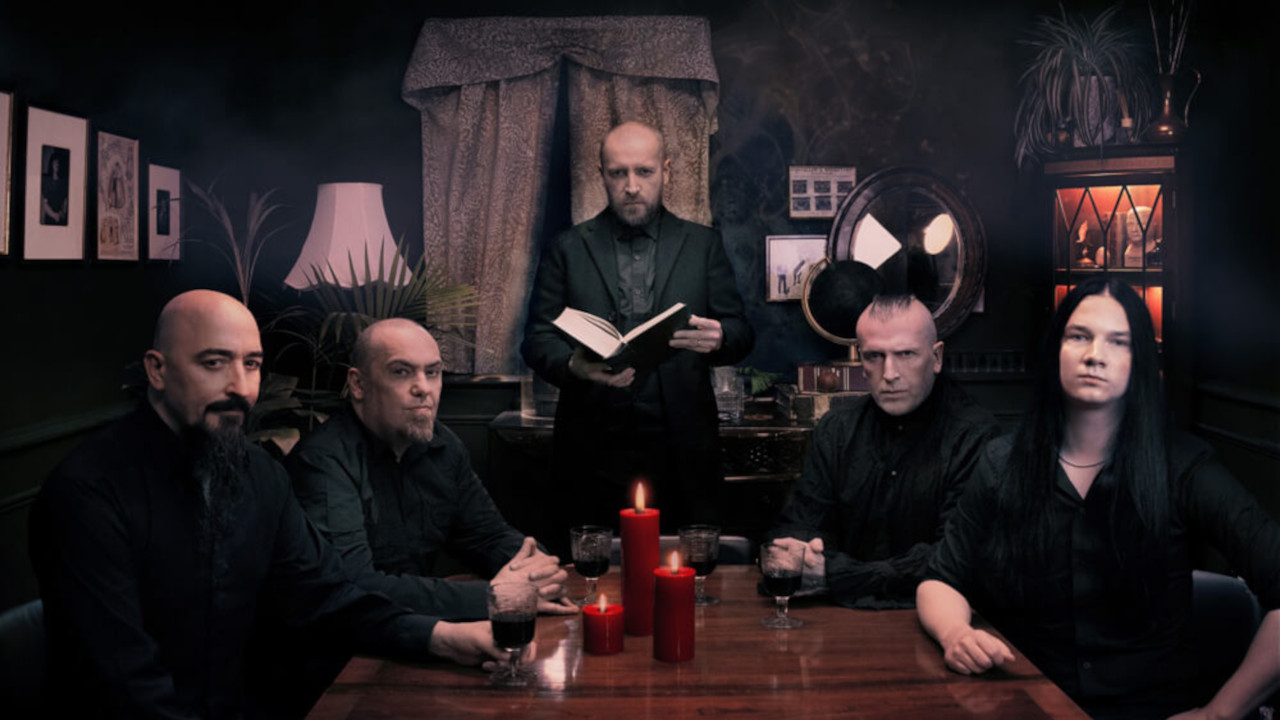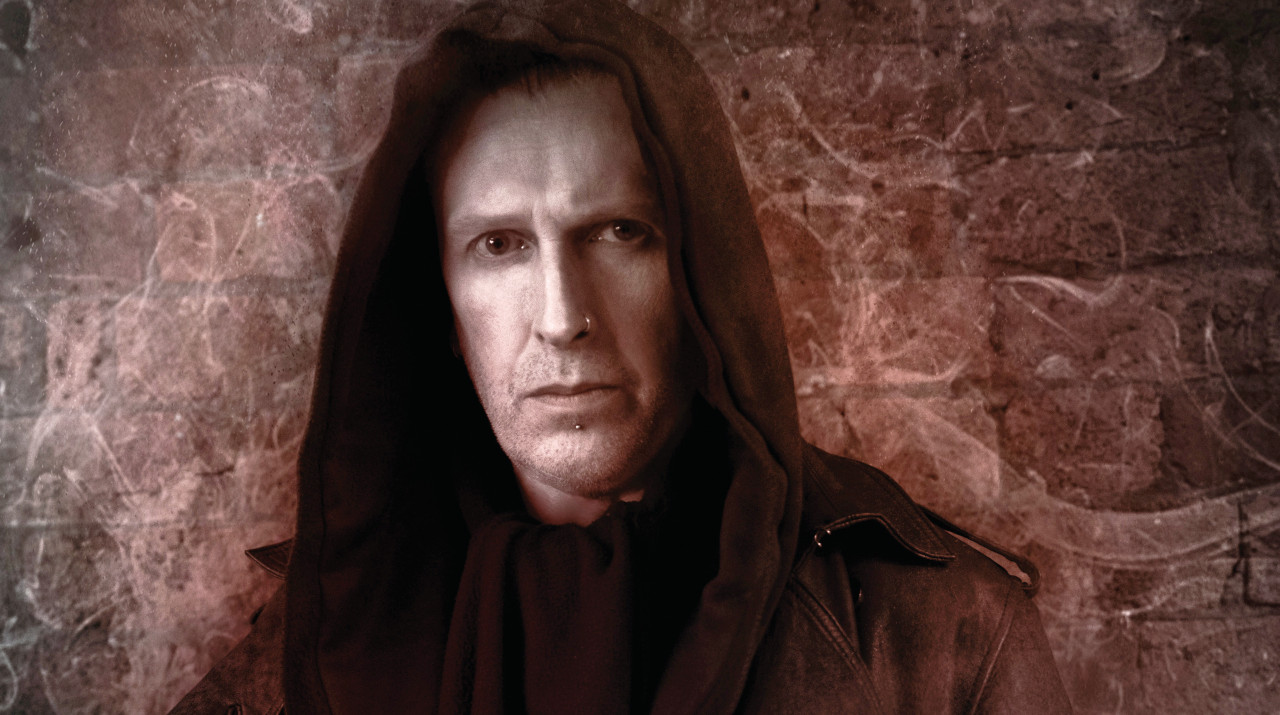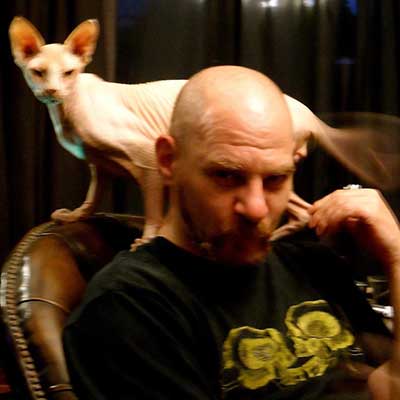As a founder member of Paradise Lost, guitarist Greg Mackintosh has overseen the band’s journey from playing tiny clubs through becoming death-doom pioneers and major label stars-in-waiting to electro-infused renegades, before arriving at their rightful place as a true institution in the metal world. Not surprisingly, Greg has a lifetime’s worth of hindsight to offer on why you should stick to your guns, and why you sometimes need to change the ammunition.

DON’T TAKE EVERYTHING TOO SERIOUSLY
“If I could tell my younger self something, it would be to enjoy yourself, relax, not be so serious, and just take it as it comes, because when you’re young, you take yourself too seriously. I was the serious one of the band and I just made it all a pain for myself. Everything was hard work, and it shouldn’t have been. I did have a kid when I was quite young, so I was constantly torturing myself about not being at home. Even my wife at the time was just like, ‘Relax, lighten up!’ And that’s what I wish I had done, because for the last 10 years, it’s just been plain sailing. All I had to do was relax a little bit and not take myself so seriously.”
DON’T TAKE FORTUNE FOR GRANTED
“We spent all this money on EMI. We ended up owing them a million pounds, and they just wrote it off. But it was such debauchery. It was actually a lot of fun, because they didn’t keep tabs on us. It was at the peak end of when all the money was in the business, right before Napster and all that. They were just throwing money around. We did press trips and everywhere was first-class flights and five-star hotels. We knew we were running out of carpet there, and then right towards the end of being on EMI, they got wise to it and started trying to control everything we did. In the end, it was just the biggest comedown ever and made me think I’d taken it all for granted, and it’s something to be relished, because it doesn’t last as long as you think.”
BE TRUE TO YOURSELF
“Try not to follow scenes too much, because you see them come and go. Especially when we’ve done the festival circuit over the years, we saw the funk metal thing come and go, the industrial metal thing come and go, bands who were headliners one year were bottom of the bill the next year. We’ve always floated around two thirds up the bill, and that’s fine by me. So I’d say stick to your guns and don’t try to blend in with the scene just to gain that audience.”
IMPERFECTION IS CREATIVE
“The UK scene was born out of a love of underground music and tape trading, but also the abilities of the people and the gear. If you had a shit amp, that became the sound of the band. If the drummer couldn’t play blast-beats, you were a doom band. It was that simple. There was something really honest about that, especially in that UK scene at the time. No one knew there were genres that were going to come out left, right and centre out of it – everyone thought, ‘Oh, they’re doing their thing.’ When we used to play with Napalm Death, we’d get people shouting, ‘Play faster!’, but that was because we were technically challenged, so we’d just play slower. That ended up being the style of the band almost.”
BE AWARE OF YOUR SURROUNDINGS
“I think you can really hear where some bands come from in their music. Some of the German thrash metal bands, you can tell what area of Germany they’re from – the mining areas, or whatever. You wouldn’t necessarily draw comparisons between us and New Model Army, but we’re not that dissimilar in the feel of what it’s about. I always think of a song like The Green And The Grey by New Model Army, it’s all about the dark Satanic mills, the green rolling hills and working-class experience. That was very important to that UK scene, because it was about struggle. No one could afford any gear, everyone borrowed everyone else’s gear. Everyone was from quite a dire situation, but it made it all that much more fun, where you got together and got a real sense of community.”
DON’T BE A STRANGER
“Spend more time with parents and family when you have the time, instead of taking it for granted. I was touring South America in 2018 and I got a call to say my mother had fallen ill. But she was fine when I talked to her on the phone the day before, so we got there on a flight, within five hours, but before we landed in England, she was dead. It was one of those things, there’s nothing I could have done about it, but in the weeks leading up to that I was, she was asking, can I come and visit, and I’d say, I’m doing this or doing that. You make your excuses, and it’s not regret, because people have a life to live, it’s just one of those things where you think I should make time for people, even when you think you’ve got stuff on, otherwise it’s totally too late.”
ONLY THE PRESENT IS REAL
“There is a history in the family of depression, but I found the best thing that helps is just getting through the 24 hours that you are in. I was in therapy for a couple of years, and it helped me to think about myself from a third-person point of view – what people might see when you are doing certain things. That’s when I came to the realisation that I was too serious. It’s about making yourself happy first and foremost, and then other people could slot in with that. There’s no point being angry about things you can’t realistically change anyway.”
WE ALL NEED TO LISTEN
“I wasn’t that empathetic when I was younger. I didn’t listen to others’ opinions too much. Not that you should let others’ opinions influence you too much, but you should let everybody finish their conversation. But there is this thing at the moment where you are either a gammon or a snowflake. I guess I’m somewhere in the middle. I’m shades of grey. I don’t like the hugely divisive arguments that are going around now, where everything takes on some huge world importance. I think the older I get, the more I’m just not wanting to hear all this anger and division. I want everyone to finish their conversations, I want everyone’s opinions to be heard, and it’s stopping me wanting to be involved in the wider conversation. It’s made me want to be blinkered, and I don’t want to be like that.”

REACTION GETS YOU OUT OF A RUT
“We recorded and toured Icon and Draconian Times with no break, and it just became a bit much and a bit samey. That’s why the change came with [PL’s electronic-influenced 1997 album] One Second, because we started to feel like we were working on a production line. It was hard to keep the spontaneity. Then there were headlines like, ‘Is this the new Metallica?’, which is far too much pressure to be put on anyone – and false.
Another headline that had me and Nick [Holmes, vocalist] on the front, said ‘Hair metal’. We both had big, bushy hair, and we were like, ‘Christ, this is really not what we got into it for.’ So bringing electronics was kind of a backlash to it all, as well as boredom. We thought, ‘What can we do to distance ourselves from this?’ It was almost like shooting ourselves in the foot, but we knew what we were doing, we just wanted to do something different. I think that’s a natural thing to do if you feel like you’ve been pushed into a corner.”
IT’S OK TO CROSS GENRES
“One Second and Host polarised opinion, but they’ve actually sold really well. It’s great that the metal community now seems to have embraced those albums. I stand by them completely though, and the reason I think it’s been accepted by the metal community now is down to how the music scene has moved on. Certain things have become more acceptable after we did Host. You wouldn’t have necessarily got a metalhead listening to Perturbator in the early 2000s, but it’s perfectly acceptable to mix the two now, or to do an album of that kind of stuff. But at the time, it wasn’t the done thing for a metal band on the rise.”
THE SPIRIT IS MORE IMPORTANT THAN THE STYLE
“That’s essentially why [Celtic Frost’s critically reviled] Cold Lake isn’t accepted these days, and Host is. Host is still miserable. The spirit in which something is done is important, because you get bands like Wolves In The Throne Room, Ulver and Sólstafir, who have done very diverse things while keeping their fans onboard. So there are bands trying to turn it around, and there are certain sections of the scene that will accept it. At the same time, there’s a huge swathe of mainstream metal that’s all trying to do the same thing, which can be a little bit boring. You’ve got to have light and shade, and bands willing to find and expand their own sound.”
The Paradise Lost box set The Lost And The Painless is out now via Peaceville Records

